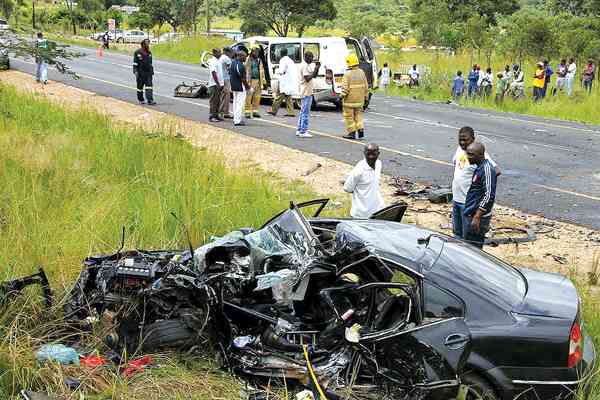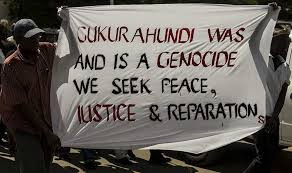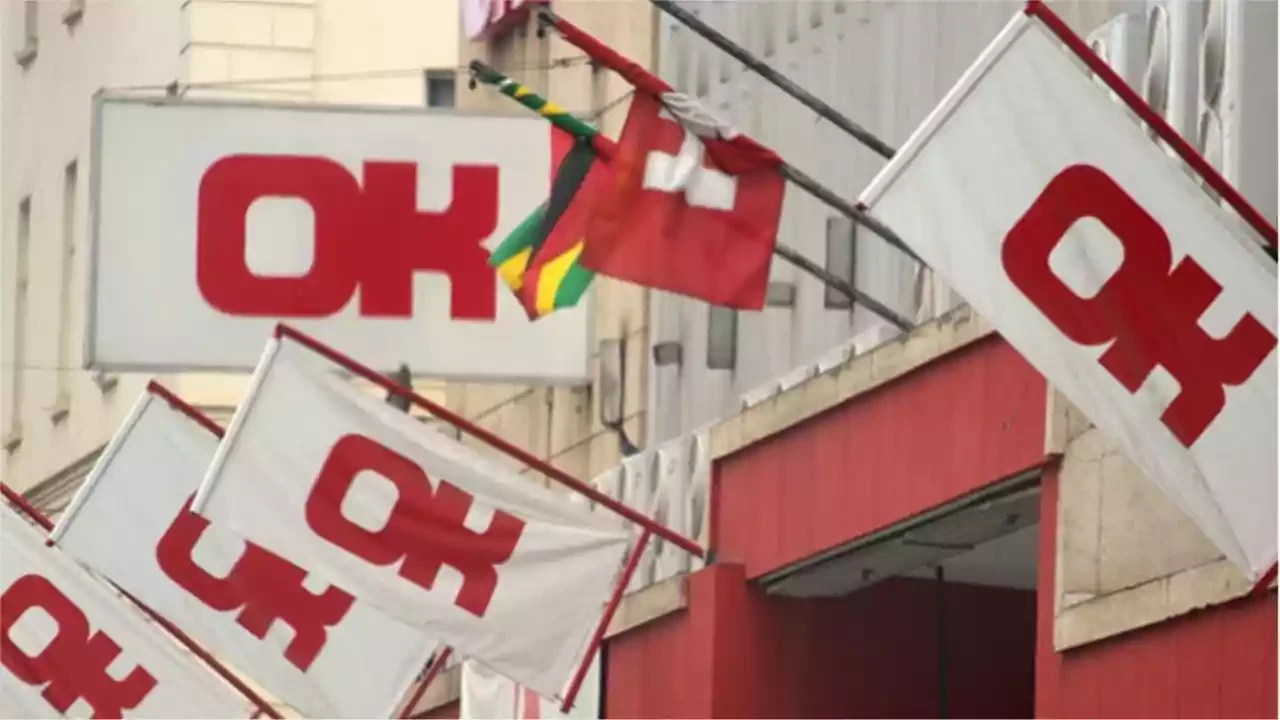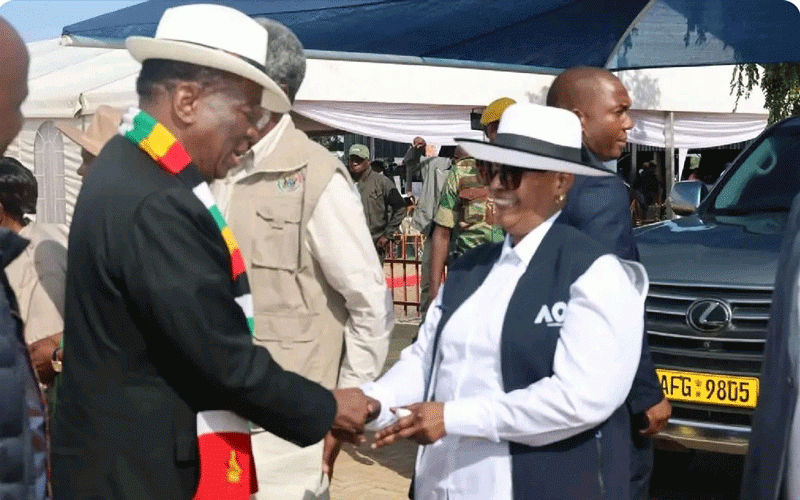
Figures on road carnage for January to September 2022 released by the Ministry of Transport and Infrastructural Development (MITD) indicate that the country recorded 1 559 fatalities and 7 851 injuries from 38 776 road traffic accidents (RTAs), which translate to five deaths per day and a collision every 15 minutes.
This is not only alarming and shocking but it is also heartrending to note that RTAs have become an albatross around Zimbabweans’ necks and can end life prematurely any moment especially if no concrete measures are taken to tame the tide.
What is more worrisome is that at the vortex of these accidents is human error, which manifests through negligent and reckless driving, speeding, dangerous overtaking, racing and other forms of malfeasances that cry to heavens for reparations.
This article comes in the wake of an unfortunate and preventable accident along the Harare-Nyamapanda road where two bus drivers were captured on video racing each other until one of them was involved in a fatal accident that unnecessarily claimed one life and injured several passengers in the process.
Our wounds are still fresh following the Tynwald High School bus accident, which claimed seven lives and maimed several students after the driver failed to negotiate a sharp curve due to speeding (and other factors) along Nyanga road.
Actually, the list of accidents associated with human error in this country’s public transport system is as long as the Nile river and this is exacerbated by the illegal commuter taxis, commonly known as mushika-shika, which have become a thorn in the flesh with regards to sacrificing Zimbabweans’ life expectancies on an altar of expediency as they seek to maximise profit and capitalise on supply-chain constraints and enforcement challenges.
The million-dollar question that boggles the mind, therefore, is: What should be done to reduce RTAs and road fatalities in this country?
This article does not claim to have monopoly over ideas, but is meant to stimulate debate on the matter so that we prevent unnecessary deaths and injuries on Zimbabwe’s roads.
- Govt suspends licences of Rimbi and Zebra Kiss buses after fatal accident
- Act now to curb road carnage
- Zim loses 5 lives everyday in traffic accidents
- Zim signs 13 air trade agreements
Keep Reading
Without negating what the MITD is doing through the Traffic Safety Council of Zimbabwe (TSCZ) and other arms of government to conscientise the motoring public on how to avoid accidents, I fervently feel that there is a yawning gap that needs to be assuaged before the crisis escalates to unimaginable proportions.
Enforcement agencies are playing their role, although there is room for improvement, especially when we factor in allegations of corruption along the value chain and how they impinge upon roadworthiness and ability to curb illegal pirate taxis.
Although the educational campaigns being rolled out by TSCZ – including focus on defensive driving – are a step in the right direction, the upward spiral in the prevalence of RTAs implies that there is need for more drastic measures, which this article seeks to propose.
It is axiomatic that prevention is better than cure.
Zimbabwe has put in place good strategies such as training medical personnel in emergency handling and establishment of an emergency and accident reporting institution, but these interventions focus mainly on post-accident care rather than prevention.
It is high time as a country we put more emphasis on how to prevent road traffic accidents and this can include other measures such as repairing of roads to eliminate potholes, as is being done along the Beitbridge-Chirundu highway.
Mushika-shikas are notorious for overloading, using un-roadworthy vehicles and even driving against oncoming traffic, among a dossier of offences they willy-nilly commit.
The law of demand and supply simply states that where demand outweighs supply, shortages arise and this gives opportunity for rent-seekers to arbitrage, and the pirate taxis are no exception.
My submission is that in addition to enforcement to bring sanity to the transport system by nabbing the pirate taxis, it is important for the government to continuously review the public transport system to enable bona-fide operators to adequately supply the market while adhering to national laws.
The ecosystem of operating licenses should be reviewed so as to allow a conducive operating environment where those who are granted the licences follow the laws of the country to the letter.
TSCZ is putting efforts to disseminate information on safe driving but it is my humble submission that a holistic and intensive educational campaign should be put in place to leave no stone unturned.
Festive and Easter holidays are synonymous with these educational campaigns but a lot more needs to be done by strengthening the communication plan of the institution to cover a hopus corpus of effective strategies such as road shows; use of opinion leaders, celebrities and social media influencers; and even making defensive driving compulsory for all classes of driving.
In Kenya, a national road safety campaign was launched in 2015 under the moniker Zusha! – which means “speak up” or “protest” in Swahili. The campaign seeks to curb road carnage by encouraging passengers using public transport to reprimand drivers against reckless or negligent driving.
Under this initiative, stickers with various messages – such as reminding the passengers that they have the power to slow down a reckless driver – has resulted in a drastic reduction of accidents and insurance claims within the targeted commuter omnibuses.
This article proposes a replication of such an initiative in Zimbabwe as we are naturally docile (no insult intended!) and our culture has socialised us to be averse to “rocking the boat”.
We need a low cost intervention that empowers passengers to voice out and reprimand drivers and other crew members to slow down; avoid dangerous overtaking; desist from driving on the wrong side of the road; and to shun any forms of reckless driving.
The major thrust of this initiative is that it is high time that passengers said “enough is enough” as they cannot surrender their fate to negligent drivers who seem to have the penchant to accelerate towards the precipice of doom.
Extraordinary situations call for extraordinary measures and this article calls for all Zimbabweans to put their hands on deck to fight this emerging threat from road traffic accidents.
Canisio Mudzimu is a freelance writer and the founder of Writing Services Africa and Reprimand the Driver Please! He can be contacted on canisiomudzimu@gmail.com











